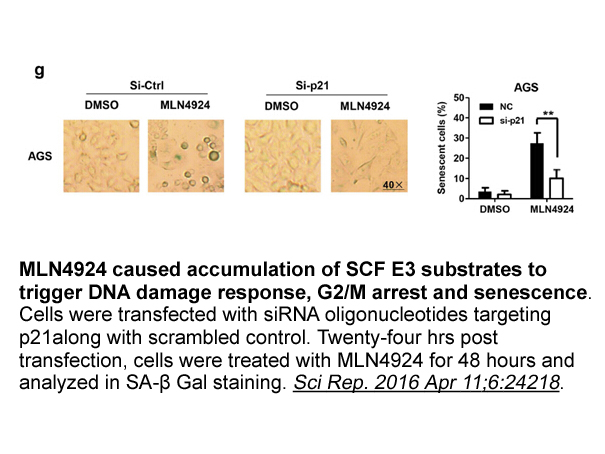Archives
rgd peptide Our previous work demonstrated that
Our previous work demonstrated that KDM5 regulates cellular oxidative stress in Drosophila (Liu et al., 2014, Liu and Secombe, 2015). It is known that gut epithelial rgd peptide contacted by enteric commensal bacteria generate reactive oxygen species in response to microbial signals (Jones and Neish, 2017). In this study, we investigate the mechanistic contribution of KDM5 to social behavior by regulating the gut microbiome composition.
Results
Discussion
In flies, chronic over-activation of the IMD pathway in the gut leads to the secretion of antimicrobial peptides (AMPs) and causes dysbiosis, ultimately resulting in death (Lee and Lee, 2014). We observed overgrowth of pathogenic-like bacteria and a decrease in commensal bacteria in KDM5-deficient flies, in agreement with previous research that maintenance of innate immune homeostasis is associated with suppression of pathogenic bacteria (Han et al., 2017). Moreover, these results support the hypothesis that the KDM5 demethylase has a direct role in maintaining gut microbiota homeostasis by regulating genes required for innate immune response, which sustain the concept that Drosophila have evolved a rich array of regulatory mechanisms to safeguard homeostatic IMD signaling (Buchon et al., 2013). Moreover, KDM5B is required for innate immune responses in mammalian cells (Ptaschinski et al., 2015). Given the evolutionary conservation of the IMD/Rel pathway, it will be important to evaluate whether mammalian KDM5A/B/C regulates gut microbiota homeostasis to affect animal behavior by modulating innate immune response. We noticed that microbial manipulation cannot rescue social behavior of KDM5-deficient flies completely, which implies that KDM5 may also affect social behavior through other pathways.
In our study, we found that loss of KDM5’s demethylase activity led to an increase in H3K4me3 levels at sites upstream of the TSS of imd and altered splicing efficiency of the PGRP-LC-RE isoform, which resulted in aberrant ac tivation of IMD signaling in vivo. Neyen et al. (2016) showed that overexpression of PGRP-LC-RE in the fat body reduced the immune response to polymeric PGN of dead bacteria. The exact mechanism of PGRP-LC-RE-mediated activation of the IMD pathway in the gut remains to be clarified. FOXO-dependent regulation of innate immune homeostasis has been reported (Becker et al., 2010), and our previous study showed that KDM5 interacts with FOXO to regulate cellular oxidative stress (Liu et al., 2014). Further investigations will need to clarify the potential role of FOXO signaling in KDM5-regulated maintenance of host-commensal bacteria homeostasis.
Acetobacter and Lactobacillus are digestive symbionts in the fly digestive system, with important roles in animal development and physiology (Broderick et al., 2014). In our study, we found significantly decreased abundance of Lactobacillus in kdm5K6801/10424 flies. Our study focused on L. plantarum, but it is likely that other Lactobacillus species can also rescue the development defects of kdm5 flies. In addition, bacteria of the genus Acetobacter are present at increased abundance in the gut of kdm5 flies. The exact role of other Lactobacillus and Acetobacter species in the development of kdm5 flies needs to be tested in future studies. Recently, Broderick et al. (2014) provided evidence that the microbiota has robust and consistent effects on gut physiology, as measured by gene expression, which implicated that L. plantarum may influence host-gene expression in GF kdm5 flies to exert its impact on larval development adult survival, gut phenotypes, and behavior.
Increasing research has emphasized the role of IMD in guiding the conversation between bacteria and host, which may act as a central regulator to integrate host defense, the physiology, and animal behavior of the whole organism (Zhai et al., 2018). The landscape of protein-protein interactions in Drosophila IMD signaling has recently been revealed by the Hoffmann group (Fukuyama et al., 2013). Impressively, we noted that many of the protein interactions with IMD signaling have previously been found to be associated with ASD, suggesting that ASD may at least partly be affected by aberrant IMD signaling, further leading to gut dysbiosis and abnormal behavior.
tivation of IMD signaling in vivo. Neyen et al. (2016) showed that overexpression of PGRP-LC-RE in the fat body reduced the immune response to polymeric PGN of dead bacteria. The exact mechanism of PGRP-LC-RE-mediated activation of the IMD pathway in the gut remains to be clarified. FOXO-dependent regulation of innate immune homeostasis has been reported (Becker et al., 2010), and our previous study showed that KDM5 interacts with FOXO to regulate cellular oxidative stress (Liu et al., 2014). Further investigations will need to clarify the potential role of FOXO signaling in KDM5-regulated maintenance of host-commensal bacteria homeostasis.
Acetobacter and Lactobacillus are digestive symbionts in the fly digestive system, with important roles in animal development and physiology (Broderick et al., 2014). In our study, we found significantly decreased abundance of Lactobacillus in kdm5K6801/10424 flies. Our study focused on L. plantarum, but it is likely that other Lactobacillus species can also rescue the development defects of kdm5 flies. In addition, bacteria of the genus Acetobacter are present at increased abundance in the gut of kdm5 flies. The exact role of other Lactobacillus and Acetobacter species in the development of kdm5 flies needs to be tested in future studies. Recently, Broderick et al. (2014) provided evidence that the microbiota has robust and consistent effects on gut physiology, as measured by gene expression, which implicated that L. plantarum may influence host-gene expression in GF kdm5 flies to exert its impact on larval development adult survival, gut phenotypes, and behavior.
Increasing research has emphasized the role of IMD in guiding the conversation between bacteria and host, which may act as a central regulator to integrate host defense, the physiology, and animal behavior of the whole organism (Zhai et al., 2018). The landscape of protein-protein interactions in Drosophila IMD signaling has recently been revealed by the Hoffmann group (Fukuyama et al., 2013). Impressively, we noted that many of the protein interactions with IMD signaling have previously been found to be associated with ASD, suggesting that ASD may at least partly be affected by aberrant IMD signaling, further leading to gut dysbiosis and abnormal behavior.